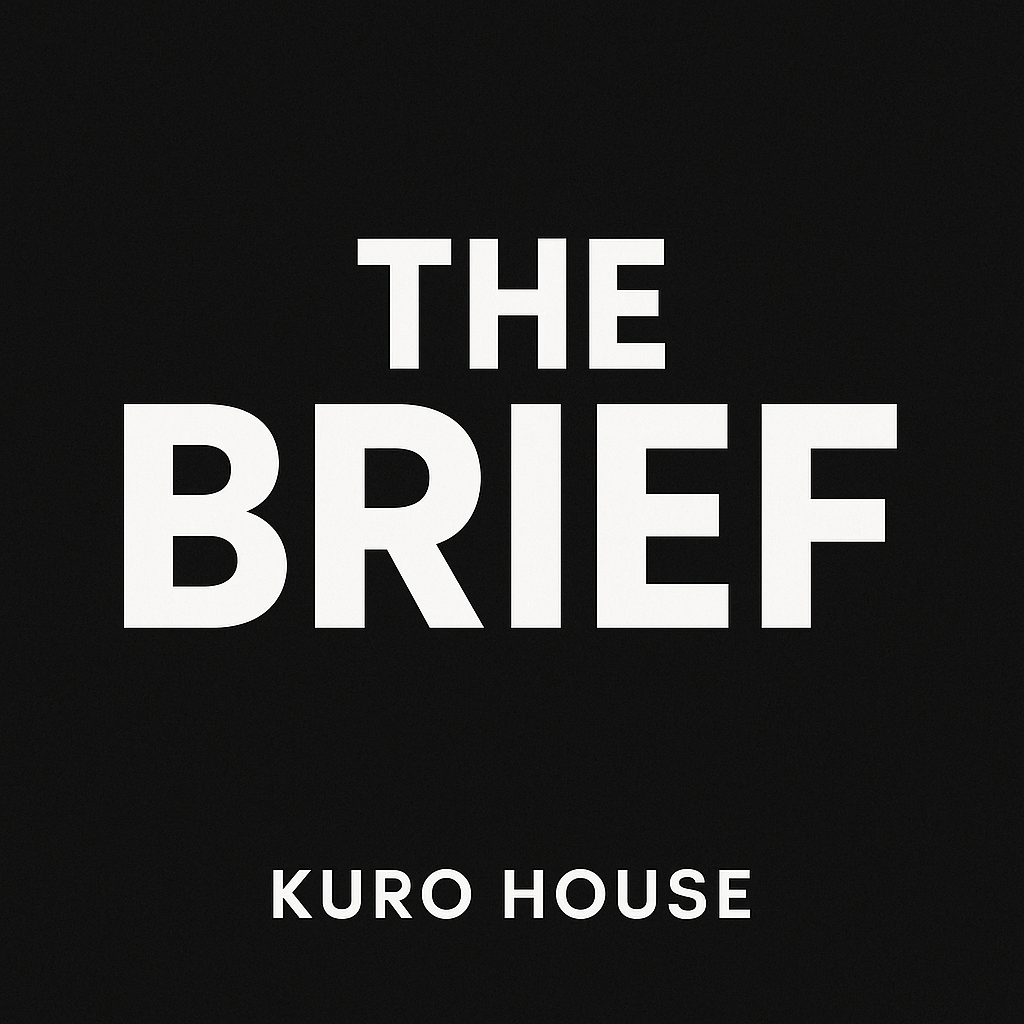Listen To The Show
Transcript
Welcome to The Brief by Kuro House, your daily dose of marketing intelligence where we break down the biggest stories shaping the industry. Today, we dive into a historic earnings milestone for Google, Meta’s growing pains with AI, a possible seismic shift in the agency world, why publishers are suddenly acting like brands, and the latest round of high-profile layoffs at CBS News. Let’s get into it.
First up, from Adweek, Google just posted its first-ever $100 billion quarter, marking a major milestone in the company’s 27-year history. Alphabet’s Q3 revenue hit $102.3 billion, up 16% year-over-year, with $87.1 billion of that coming from Google Services—think Search, subscriptions, platforms, devices, and YouTube ads. Google Cloud was a standout, growing 34% to $15.2 billion. The company’s investments in AI are clearly paying off: they’ve expanded LLM-powered Search experiences, AI Overviews, and AI Mode globally, and are experimenting with integrating ads and commerce tools directly into these products. CEO Sundar Pichai noted that AI Overviews are driving meaningful query growth, especially among younger users. AI Mode now boasts over 75 million daily active users, and their Gemini foundation models have reached a whopping 650 million monthly active users, with queries tripling since Q2. Google’s partnerships with Nvidia are fueling this growth, with over 1.3 quadrillion monthly tokens processed—a 20-fold increase from last year. YouTube, still the top streaming platform in the US, saw ad revenues jump 15%, and the addition of live NFL programming is expected to boost this further. Despite the looming shadow of DOJ antitrust battles—Google was recently found in violation of federal competition law and will face remedies soon—Pichai remains bullish: “Our revenue number has doubled in five years, and we are firmly in the generative AI era.” Shares rose over 6% in after-hours trading, signaling strong investor confidence even as regulatory scrutiny intensifies.
Switching gears to Meta, also via Adweek, the company reported $50.1 billion in ad revenue, up 26% from last year, and overall revenue of $51.24 billion. But despite these big numbers, Meta’s shares fell as investors grew uneasy about the company’s ballooning AI infrastructure costs. Meta took a $15.9 billion one-time, non-cash tax hit due to changes from Trump’s “One Big Beautiful Bill Act,” which dramatically lowered earnings per share to $1.05—far below analyst expectations. The company is on a hiring spree, now at over 78,400 employees, with a focus on technical AI talent, and CFO Susan Li said expenses will grow “significantly faster” in 2026 thanks to ongoing investments in data centers and cloud capacity. AI is everywhere at Meta: recommendation systems are boosting time spent on Facebook and Threads, and Reels now boasts an annualized revenue run rate of over $50 billion. But the real question is whether Meta’s AI investments will pay off beyond advertising—and on what timeline. Mark Zuckerberg insists Meta is still “underbuilt” on AI infrastructure, and if they end up overbuilding, he says the worst-case scenario is they’ll simply grow into that capacity over time. For now, the company is betting big that AI will be central to its future, even if Wall Street isn’t quite convinced yet.
Now, let’s talk about a potential shakeup in the agency world, courtesy of Adweek’s reporting on Omnicom. Rumors are swirling that Omnicom Group may retire the iconic DDB agency brand following its $13.5 billion acquisition of Interpublic Group, expected to close by the end of November. While Omnicom hasn’t confirmed or denied the reports, it did say it’s evaluating its agency portfolio ahead of the deal. Speculation is that Omnicom will consolidate creative operations around BBDO, TBWA, and McCann, potentially eliminating DDB as a standalone global brand. DDB, founded in 1949 and known for legendary campaigns like Volkswagen’s “Think Small” and McDonald’s “You Deserve a Break Today,” has already started consolidating some operations and aligning under the Omnicom Advertising Group umbrella. This move would mirror recent consolidations by WPP, Publicis, and Dentsu. The acquisition would make Omnicom the world’s largest ad holding company by revenue, overtaking Publicis and WPP, and is expected to generate $750 million in cost synergies. While DDB’s future is uncertain, this could mark the end of an era for one of advertising’s most storied names.
Turning to the publishing world, Adweek highlights a fascinating new trend: major publishers are launching ambitious brand marketing campaigns—often for the first time ever. Hearst, Wired, The Guardian, MarketWatch, NBC News, and Reuters have all rolled out large-scale campaigns across digital, social, and physical channels. The timing is no coincidence. Social referral traffic and search engine disruption from AI have made it harder for publishers to reach audiences passively. Now, especially with younger generations less familiar with legacy brands, publishers are proactively building brand equity to stay top-of-mind. MarketWatch, for example, targeted Gen Z with bold creative and cheeky copy, while NBC News and Reuters are focusing on trust and credibility. These campaigns also play into negotiations with AI firms, as publishers seek to license their content for use in answer engines—a more recognizable brand could command a higher market rate. The trend is also fueled by the need to support subscription businesses and to shore up public perception amid political attacks and declining media trust. Long-term, family or trust ownership at these publishers allows for patient investment in brand equity, something not every company can afford but which could prove crucial for survival and growth in a rapidly shifting landscape.
Finally, from Adweek’s TVNewser, CBS News has undergone sweeping layoffs as part of a larger workforce reduction by parent company Paramount Skydance. Nearly 100 positions are being cut across the network, affecting both on-air and off-air talent. Notable casualties include CBS Saturday Morning co-anchors Michelle Miller and Dana Jacobson, and executive producer Brian Applegate. The third hour of CBS Mornings, “CBS Mornings Plus,” has been canceled, and John Dickerson’s streaming show “Evening News Plus” is also gone, with the entire team let go. The South Africa bureau is shutting down, with oversight moving to London, and correspondent Debora Patta among those laid off. Other on-air names affected include Janet Shamlian, Nikki Battiste, Nancy Chen, and Lisa Ling. CEO David Ellison described the cuts as necessary to eliminate redundancies and align with new priorities following the Paramount Skydance merger. The company aims to eliminate 2,000 positions in total, with half happening now and the rest to come. It’s a stark reminder of the ongoing upheaval in the media industry and the tough choices facing legacy networks.
That’s it for today’s Brief. Whether it’s tech giants doubling down on AI, agencies consolidating for the future, publishers fighting for relevance, or newsrooms grappling with change, the marketing and media landscape is anything but static. Stay curious, keep questioning, and remember: the only constant in our industry is change. Thanks for listening, and we’ll see you next time.

